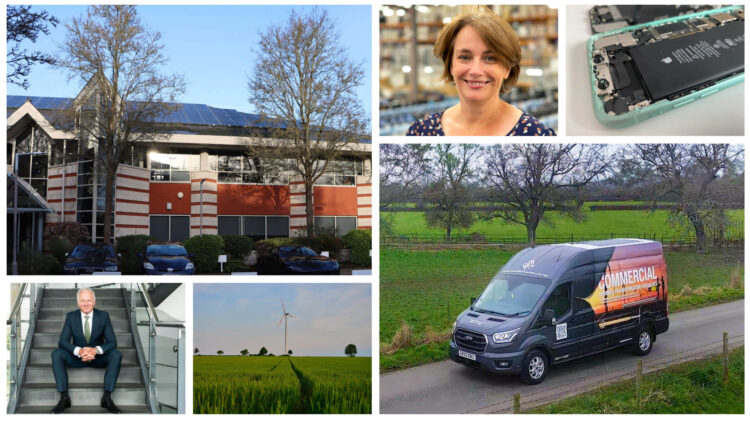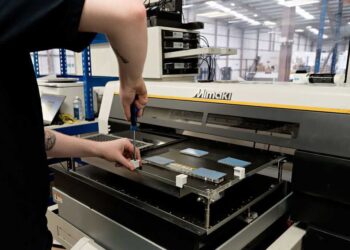4. CDW
Scope 1 and 2 emissions: 1,313 tCO2e (-28%)*
Revenue: £1.3bn**
Emissions per £1m revenue: 1.4 tCO2e
*Carbon emissions taken from 2023 Carbon Reduction plan, with YoY comparison based on SECR data in 2022 accounts
**Revenue figure taken from 2022 accounts

Talking to IT Channel Oxygen in February, Jon Steggles, ESG Strategic Lead at CDW UK, stressed that US-headquartered CDW’s sheer size means it faces “exponentially greater challenges in achieving absolute emission reductions than others in the technology industry”.
His comments came as the world’s largest reseller submitted three short-term decarbonisation goals to the Science Based Targets initiative.
In the UK (where it harbours a more expansive 2040 net zero goal), CDW’s reported Scope 1 and 2 emissions stood at a respective 356 and 957 tCO2e in calendar 2023, according to its most recent Carbon Reduction plan.
It has moved to 100% renewable energy across its single-tenanted premises and installed 10kWh and 55kWh solar panel arrays at its Rugby distribution centre and Peterborough service operation centre, respectively. Having already switched 59% of its UK fleet to hybrid EVs, the remaining 41% (or 23 vehicles) transitioned in March 2024, meanwhile.
When it comes to Scope 3, CDW UK now reports five of the 15 Scope 3 categories (namely ‘upstream transportation and distribution’, ‘waste generated in operations’, ‘business travel’, ‘employee commuting’ and ‘downstream transportation and distribution’). It pegged emissions from these at 2,281 tCO2e in 2023.
3. Bytes
Scope 1 and 2 emissions:
Location based: 273 tCO2e (-5%)
Market based: 90 tCO2e (+1%)
Gross invoiced income (GII): £1.44bn
Emissions per £1m GII: 0.2 tCO2e (location based), 0.1 tCO2e (market based)

This software licensing giant is ploughing on with its decarbonisation journey at pace, appointing Lisa Prickett as its first Group Sustainability Manager and rolling out an electric vehicle salary sacrifice scheme for employees in its fiscal year ending 31 July 2023.
During the period, Bytes slashed its (market-based) Scope 2 emissions to zero following its first full year of moving to renewable electricity across its operations. A heating failure at its Surrey office fuelled a short-term spike in its Scope 1 emissions, however.
Bytes’ Scope 3 emissions rose from 90 to 1,292 tCO2e due largely to the increased sophistication of its reporting (the newly added ‘employee commuting’ category generated the largest proportion of this, at 860 tCO2e).
Bytes expects to have its net zero targets validated by the Science Based Targets initiative this year, which would bring it in line with LSE-listed peers Softcat and Computacenter.
It flagged up its Phoenix sustainability app, which is designed to help local authorities get a view of their carbon emission and take mitigating actions, as evidence of how it is helping its customers to decarbonise.
DOWNLOAD THE CHANNEL RACE TO ZERO REPORT HERE
How are Softcat and Computacenter tackling their carbon emissions? See final page…














